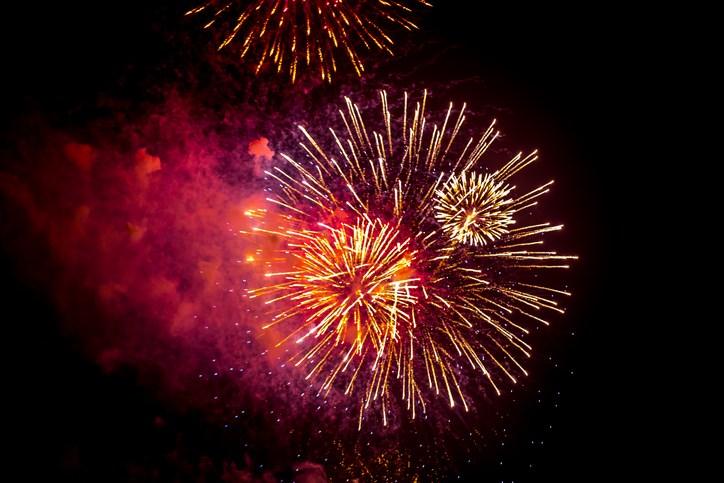A proposed fireworks ban in the District of North Vancouver sparked some heated responses from both sides of the issue at a public hearing held Tuesday evening.
District council heard from 11 residents on a proposed bylaw prohibiting the sale and use of consumer fireworks, with a slight majority of the speakers coming out in support of the ban.
The proposed bylaw amendment prohibits the sale and use of consumer grade fireworks, but it would “allow fireworks to continue in a structured format at specifically authorized events where technicians certified under the Explosives Act would be permitted to utilize fireworks,” said District of North Vancouver Fire and Rescue Services Chief Brian Hutchinson.
Currently, the existing bylaw requires individuals to purchase a permit from the fire department, and fireworks can only be lit on private property between 6 p.m. and 10 p.m. on Halloween night.
There were 52 permits issued for fireworks in 2020 but over the Halloween weekend, there were more than 180 complaints related to fireworks sent to the North Vancouver RCMP and West Vancouver Police Department, according to district staff. There were also three relatively minor fires and some damage to district parks property.
In the weeks leading up to and after Halloween 2020, council received 151 emails supporting a ban, compared to just 18 opposed. And the district receives numerous complaints about fireworks noise and property damage every year, staff noted when the ban was last discussed by council in July.
Emily Pickett, the campaign director of Vancouver Humane Society, shared the organization’s concerns about the impact fireworks have on wild and domestic animals. Fireworks are associated with anxiety, disorientation and stress in wild animals, she said, adding that many domestic animals can develop noise phobias.
“This is an important consideration given the district’s proximity to a lot of wildlife habitat, places like Maplewood Flat,” she said at Tuesday's public hearing. “The Vancouver Humane Society encourages city council to take concrete steps that will help protect wildlife and the environment by prohibiting consumer fireworks.”
For Karry Eilers, every action people can do for the environment should be done, no matter how small.
“One of the reasons people come here is that nature defines North Van. Fireworks don’t define North Van. And if I had to choose between one day of fun, half an hour of fun, over doing the right thing for the environment, my wild animals, my domesticated animals, I think I’ll do the right thing by them,” said Eilers.
But for the five opponents like Peter Teevan, this ban will only punish individuals who have been following the rules and safely discharging fireworks on private property.
“My perception is that the bulk of complaints are going on outside the [existing] bylaw,” said Teevan. “Therefore, given that you can still buy fireworks in other municipalities, given that you can still buy them online, they’re still going on illegally. So, enforce the bylaw. … A four hour window once per year where a community can come together, I don’t think is too much to ask.”
And while Teevan said people can plan and prepare their pets for that four hour window, Eilers argued that this isn’t the reality.
“Give an inch, take a mile,” said Eilers. “That’s exactly what’s happening here. Every year, fireworks start on Oct. 29. They go Oct. 30. Oct. 31 is a crescendo. Nov. 1, Nov. 2. They are for five days, continuous.”
Dan Curry said fireworks are a tradition he wants to see continue because it builds community, especially since people have felt disconnected during the pandemic.
But a supporter of the ban, Alison Wood, countered that there are different ways to bring communities together.
“Building a community with a little bit of creativity doesn’t need to be around polluting our environment and negatively affecting wildlife as well as domestic animals. We need to find other ways of bringing communities together,” said Wood.
Council will make a decision on the proposed bylaw during a regular council meeting in the near future. If the bylaw is implemented, it will not take effect this year.


